Almost all the Uyghurs are located in Xinjiang Uyghur Autonomous Region with a population of 9,413,796, about 46% of the total. The Uyghur is the largest ethnic group in Xinjiang. Besides the Uyghur, Han, Kazak, Hui, Mongolia, Tatar and Russian etc are also live in Xinjiang.
The Uyghurs are mainly located in Kashgar, Hotan, Aksu, Korla and others in Urumqi, Ili etc. They have their own language and alphabet. The name Uyghur means “unite” or “alliance”. The Uyghur people believe in Islam.
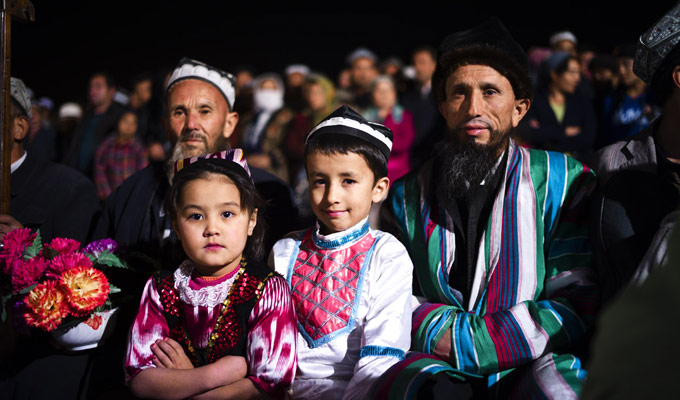
Uyghur Ethnic Minority in Xinjiang
The Uyghur people’s staple food is Nang, noodles and Zhuafan. Nang is a kind of crisp baked pie, usually eaten with tea. Popular drinks include tea, milk tea and oil tea. Various fruits, mutton and beef are also typical favorites.
As about the etiquette, when meeting with guests, they shall shake hands and greet each other “hello” in Uyghur language. Presents shall be offered with both hands to show hospitality. When visit a Uygur family, remember the eldest people sit in the most distinguished seat and guests are expected not to look around the house. And don’t leave food in your bowl.
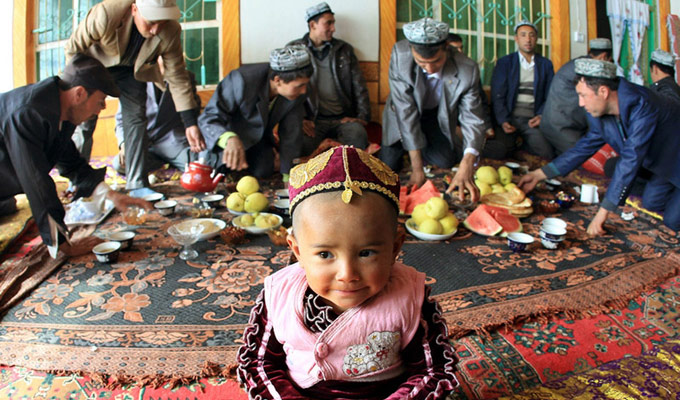
Uyghur People's Daily Life and Eating
The Uyghur people are good at dancing and singing. The wedding ceremony are celebrated with all guests, joining in their traditional folk dance. The Uyghur culture reflects its wisdom, literary and artistic talents. Poems and oral legends are always popular. They story of Afanti is very popular among Uyghur children.
There are some grand festivals celebrated by Uyghur including Coban Festival, Kaizhai Festival and Almsgiving Festival. The festivals are related with the Islam religion.
The Corban Festival, Festival of Sacrifice, is an annual major traditional Islamic festival on the tenth of the twelfth month of the Islamic calendar. It comes 70 days During the festival, all Islamic families would clean up their houses, take part in community worship to pilgrimage to Allah, kill livestock (sheep, cattle, camel, chicken) and offer sacrifice to Allah.
Built in 1442, Id Kah Mosque, the largest mosque in China, is located in Kashgar, Xinjiang. The yellow-tiled mosque is also the center of Islamic activities for people in Kashgar and surrounding cities.
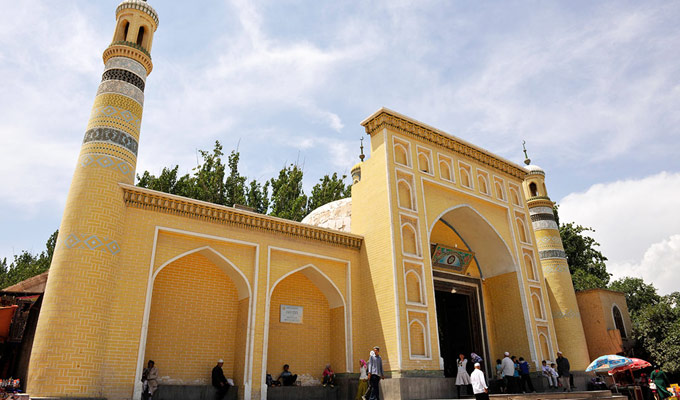
Id Kah Mosque
Located 5 km northeast of Kashgar city, Apak Khoja Tomb, known as Fragrant Concubine Tomb, is a mausoleum complex of the Khoja family of the Aktaglik sect. The Apak Khoja Tomb is a tranquil place and a beautiful example of Uyghur Islamic architecture.
Kashgar Old Town is located in the heart of the city. The residents of the Old Town are pure Uyghur who have been living in this area since Kashgar city was founded. It is good to walk down the winding narrow street, pass through the ancient architectural style of mud brick houses and visit one of the Uyghurs’ houses.
Kashgar Sunday Market, also known as Kashgar Sunday Bazaar, is the biggest market in Central Asia. The Sunday Market is active every day, but on Sunday, people from all corners of Kashgar and surrounding areas come into the market to sell or buy, ranging from headscarf, Pakistani goods, textiles, dried fruits, shoes, medicines, traditional Kashgar and Hoton carpets, handicrafts, sweets, bags, hats, musical instruments and more.
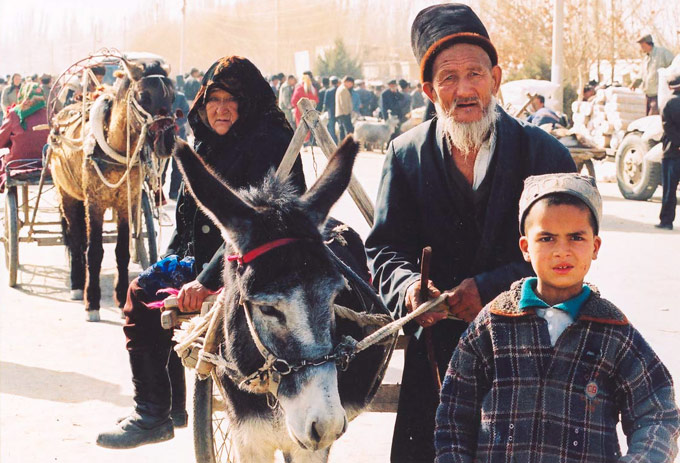
Attend Kashgar Sunday Market
Check the best-selling China ethnic minority tours, which covers the Uyghur ethnic group in Xinjiang etc. Remember, all can be customized to satisfy your needs at best price!
Top 3 tours chosen by most customers to explore in the best way. Check the detailed itinerary, or tailor your own trip now with us.
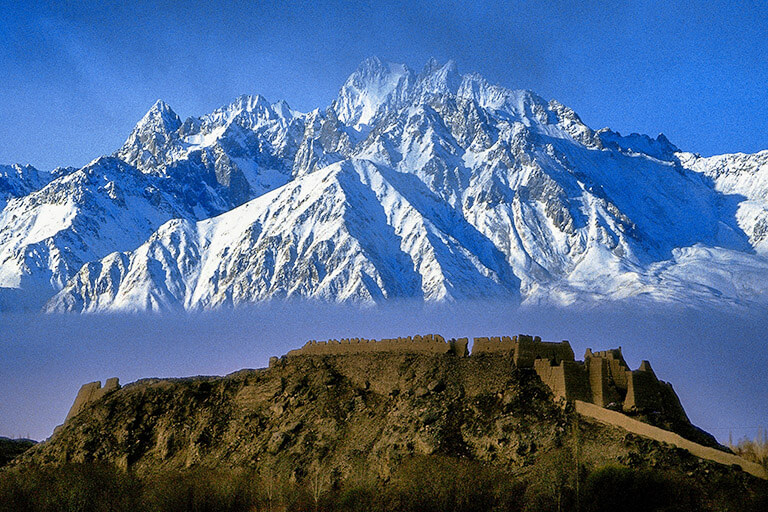
Urumqi - Turpan - Kashgar - Tashkurgan
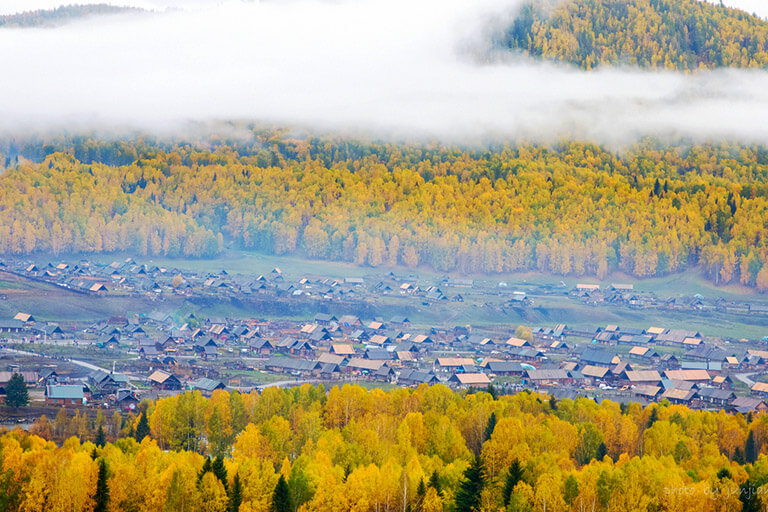
Urumqi - Wu'erhe - Kanas - Burqin - Urumqi - Turpan - Urumqi
Start planning your tailor-made holiday to China by contacting one of our specialists. Once inquired, you’ll get a response within 0.5~23.5 hours.
Customize a Trip